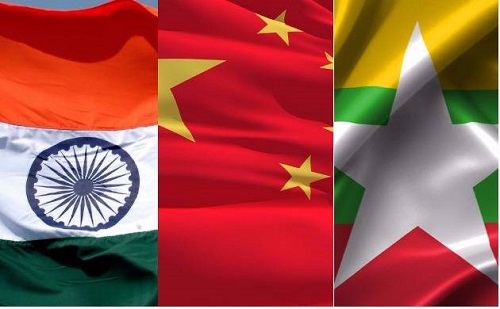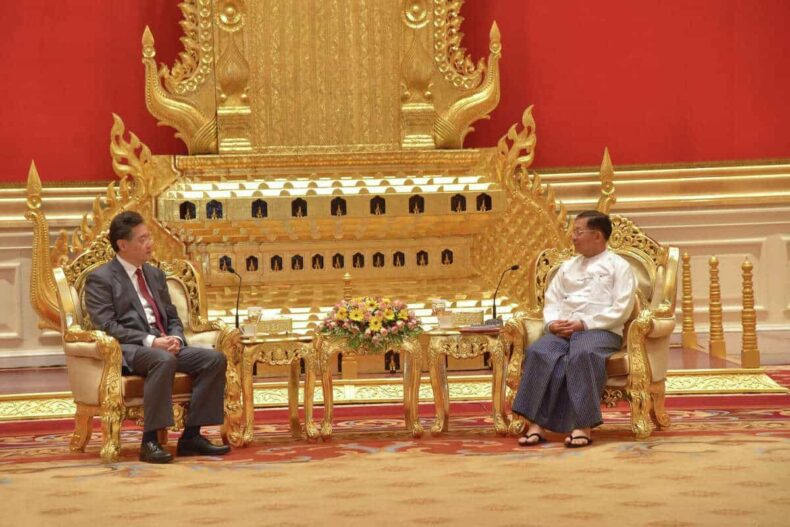China’s Foreign Minister Qin Gang, the highest-ranking official, met Myanmar’s top military general and reiterated the former’s stand to support the latter’s Junta government.
Table of Contents
1. What is the latest development?
China is currently on a mission to gain “diplomatic credibility”. Last month, it brokered a historic deal between Saudi Arabia and Iran on the reestablishment of ties. In an unprecedented move, Beijing’s highest official, Foreign Minister Qin Gang, visited the border of Myanmar and discussed relations with Senior Gen Min Aung Hlaing, head of the military council.
A military coup was staged against the civilian government of Aung San Suu Kyi in February 2021. Since then, Myanmar has been internationally condemned and has faced the backlash of undemocratic activities by the military government. Naypyidaw is also globally isolated and is still grappling for international support.
As per the reports, Qin has highlighted the need for a stabilised environment in the country and reiterated China’s support for Myanmar at “international forums”. Beijing, along with Russia, has been supporting Myanmar in terms of military and economic aid and is a key partner of Myanmar.
As per the official statements, Beijing asserted that the “international community” ought to respect the sovereignty and integrity of Myanmar and indulge in constructive discourse to catalyse peace, stability, and development in the country.
2. China-Myanmar axis
In the meeting, the two nations discussed various issues, including trade, a crackdown on cross-border terrorism, transport, investments, and cooperation on electricity and energy.
Myanmar is currently embroiled in domestic turmoil. After the overthrow of the democratically elected government, the Junta government faced massive pro-democracy protests. Subsequently, it was brutally suppressed by the military, leading to a further escalation of the turmoil. The international community, led by the US, has bombarded Myanmar with umpteen crippling sanctions that have had a “butterfly effect” on Myanmar’s economy.

However, Myanmar has garnered support from China on economic, diplomatic, and military parameters. According to reports, the foreign minister has also highlighted the need for a “China-Myanmar” economic corridor to facilitate a perennial flow of goods and spur development on both sides of the border.
3. Regional geopolitical ramifications
China has also indicated bolstering its ties with Bangladesh, promoting trilateral cooperation among China, Myanmar, and Bangladesh. In 2017, China acted as a mediator in the “pilot project” of relocating the Rohingya refugees. China has also appointed a special envoy to Myanmar, Deng Xijun, underlining Beijing’s keen interest in pursuing this partnership.
However, the relationship is not all good so far; there has been an imminent threat from cross-border terrorist activities, as well as the “Golden Triangle” (a region where the borders of Laos, Myanmar, and Thailand meet), of which Myanmar happens to be a part. The region is known for producing opium, which has accelerated since the military takeover. Therefore, building a robust border defence system is a prime concern for China.

This burgeoning partnership, however, is not auguring well for regional stability and security. India, which shares a border with Myanmar, often faces the problem of refugee influx and cross-border terrorism. It also wants to counter the dominance of China in the region. The Chinese foreign minister, Qin Gang, is also slated to visit India, with whom the country is going through tumultuous relations owing to the border stand-off, for the Shanghai Cooperation Organisation’s foreign minister’s meeting.
A lot is to be seen in how China, despite international wrath, can support the activities of the Junta government and, simultaneously, protect its own interests.













